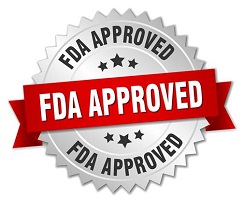Food and Drug Administration approved durvalumab (IMFINZI®, AstraZeneca) in combination with etoposide and either carboplatin or cisplatin as first-line treatment of patients with extensive-stage small cell lung cancer (ES-SCLC)

From the American Society of Clinical Oncology in cooperation with the Food and Drug Administration (FDA) and as a service to our members, ASCO will periodically distribute information about newly approved therapies for cancer patients. This helps FDA inform oncologists and professionals in oncology-related fields about recent approvals in a timely manner. Included in the email from the FDA will be a link to the product label, which will provide the relevant clinical information on the indication, contraindications, dosing, and safety. In sending this information, ASCO does not endorse any product or therapy and does not take any position on the safety or efficacy of the product or therapy described. The following is a message from the Director of the FDA Oncology Center of Excellence, Dr. Richard Pazdur:
On March 27, 2020, the Food and Drug Administration approved durvalumab (IMFINZI®, AstraZeneca) in combination with etoposide and either carboplatin or cisplatin as first-line treatment of patients with extensive-stage small cell lung cancer (ES-SCLC).
Efficacy of this combination in patients with previously untreated ES-SCLC was investigated in CASPIAN, a randomized, multicenter, active-controlled, open-label, trial (NCT03043872). The evaluation was based on the comparison of patients randomized to durvalumab plus chemotherapy vs. chemotherapy alone. The major efficacy outcome measure was overall survival (OS). Additional efficacy outcome measures were investigator-assessed progression-free survival (PFS) and objective response rate (ORR), per RECIST v1.1.
Median OS was 13.0 months (95% CI: 11.5, 14.8) in the durvalumab plus chemotherapy arm compared with 10.3 months (95% CI: 9.3, 11.2) in the chemotherapy alone arm (hazard ratio 0.73; 95% CI: 0.59, 0.91; p=0.0047).
Investigator-assessed PFS (96% of total planned events) showed a HR of 0.78 (95% CI: 0.65, 0.94), with median PFS of 5.1 months (95% CI: 4.7, 6.2) in the durvalumab plus chemotherapy arm and 5.4 months (95% CI: 4.8, 6.2) in the chemotherapy alone arm. The investigator-assessed confirmed ORR was 68% (95% CI: 62%, 73%) in the durvalumab plus chemotherapy arm and 58% (95% CI: 52%, 63%) in the chemotherapy alone arm.
The most common adverse reactions (≥20%) in patients with ES-SCLC were nausea, fatigue/asthenia, and alopecia.
For ES-SCLC, durvalumab is to be administered prior to chemotherapy on the same day. The recommended durvalumab dose when administered with etoposide and either carboplatin or cisplatin is 1500 mg every 3 weeks prior to chemotherapy and then every 4 weeks as a single agent.
View full prescribing information for IMFINZI.
This review used the Assessment Aid, a voluntary submission from the applicant to facilitate the FDA’s assessment.
FDA granted this application priority review and granted durvalumab orphan drug designation for this indication. A description of FDA expedited programs is in the Guidance for Industry: Expedited Programs for Serious Conditions-Drugs and Biologics.
Healthcare professionals should report all serious adverse events suspected to be associated with the use of any medicine and device to FDA’s MedWatch Reporting System or by calling 1-800-FDA-1088.
For assistance with single-patient INDs for investigational oncology products, healthcare professionals may contact OCE’s Project Facilitate at 240-402-0004 or email OncProjectFacilitate@fda.hhs.gov.
For information on the COVID-19 pandemic, see the following resources:
FDA: Coronavirus Disease 2019 (COVID-19)
NCI: Coronavirus: What People With Cancer Should Know
Follow the Oncology Center of Excellence on Twitter @FDAOncology.

